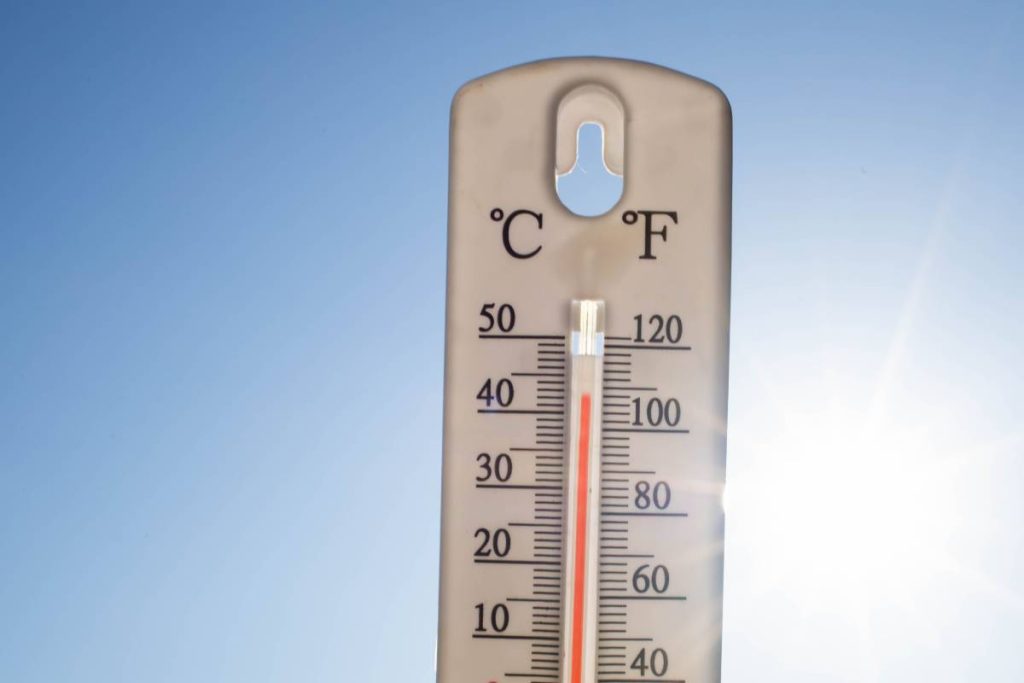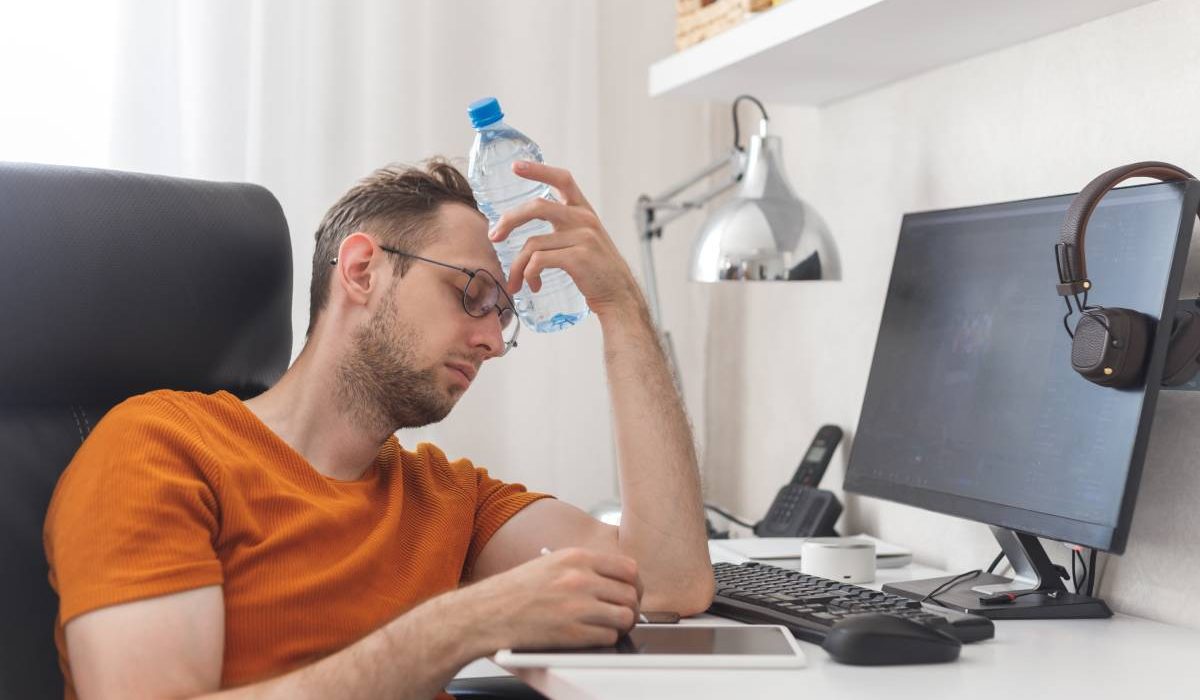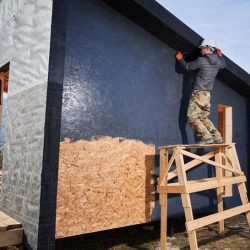Heat waves are universally disliked. They’re not just uncomfortable; the soaring temperatures can make it seem like you’re inside an oven. However, the real danger of heat waves lies in the threat they pose to public health.
Heat is the leading cause of weather-related deaths in the United States. Even if it doesn’t turn fatal, exposure to high temperatures can lead to issues like dehydration, exhaustion, and, in severe cases, heat stroke.
Data from the National Oceanic and Atmospheric Administration reveals that more people face heat waves each year. Over the decades since the 1960s, there has been a consistent rise in the frequency, duration, and intensity of heat waves. Since avoiding them is becoming increasingly challenging, let’s explore ways to stay cool during a heat wave when it inevitably hits your area.
What causes heat waves?
Heat waves are prolonged periods of excessively high temperatures, often accompanied by high humidity, creating hazardous conditions for both human health and the environment. These extreme weather events are primarily caused by the interaction of various meteorological and geographical factors.
One key factor contributing to heat waves is atmospheric pressure patterns. High-pressure systems can trap warm air in a region for an extended period, preventing the normal dispersion of heat. This stagnant air mass allows temperatures to soar, intensifying the heat wave.

Additionally, the presence of a persistent ridge in the jet stream, a high-altitude air current, can contribute to the formation and sustenance of heat waves. When the jet stream meanders and forms a ridge, it can lead to the establishment of a high-pressure system at the surface, fostering hot and dry conditions.
Another significant influence on heat waves is climate change. Human activities, such as the burning of fossil fuels, deforestation, and industrial processes, contribute to the accumulation of greenhouse gases in the atmosphere. This enhanced greenhouse effect intensifies global warming, raising baseline temperatures and increasing the likelihood of extreme heat events. The warming of the Earth’s surface exacerbates the conditions that give rise to heat waves.
Geographical features also play a role in the development of heat waves. Urban heat islands, where human activities and infrastructure absorb and re-radiate heat, can result in localised temperature increases. Paved surfaces, buildings, and lack of vegetation contribute to higher temperatures in urban areas, amplifying the impact of heat waves on densely populated regions.
In summary, heat waves are complex phenomena influenced by atmospheric pressure patterns, jet stream behaviour, climate change, and local geographical features. As global temperatures continue to rise due to human-induced climate change, the frequency and intensity of heat waves are expected to increase, posing challenges for societies to adapt and mitigate the associated risks.
How do heat waves affect your health?
Heat waves, though not as prominently covered as tornadoes or hurricanes, are one of nature’s most perilous hazards. Globally, they rank among the top causes of weather-related deaths. Between 1998 and 2017, heat waves claimed over 166,000 lives worldwide.
Being exposed to high temperatures can put a significant strain on the body. When the air is excessively hot and humid, your body finds it tougher to cool down. Additionally, heat often leads to dehydration and increased sweating, elevating your body temperature. Prolonged elevated temperatures can result in signs of heat-related illnesses, including heat cramps, heat exhaustion, and heat stroke.

Heat Cramps
Heat cramps are a milder form of heat-related illness, usually causing painful muscle spasms in the legs and abdomen. These cramps can also occur in other parts of the body and are often accompanied by heavy sweating.
If you think you have heat cramps, the Centers for Disease Control and Prevention (CDC) suggests stopping physical activity, finding a cool place, and rehydrating. Seek medical assistance if the cramps persist for over an hour or if you have a history of heart problems.
Heat Exhaustion
Heat exhaustion occurs when your body overheats. Symptoms include heavy sweating, pale and clammy skin, muscle cramps, nausea, vomiting, fatigue, dizziness, headaches, and fainting. According to the CDC, seek medical help if you start vomiting if your symptoms worsen, or if they last longer than an hour.
Heat Stroke
Heat stroke is the most severe heat-related illness and can be fatal if untreated. Symptoms include a fever of 103°F or higher, hot or red skin, headache, dizziness, nausea, confusion, and loss of consciousness. The CDC recommends calling 911 (or your country’s emergency number) at the first sign of a heat stroke.
If someone is experiencing a heat stroke, move them to a cooler place, use wet clothes or a cool bath to lower their temperature, or take them to a hospital. Avoid giving water or any liquids to someone having a heat stroke.
Groups at Risk During a Heat Wave
While prolonged high heat affects everyone, certain groups are more vulnerable to heat-related illnesses. These groups include:
- Young children and infants: Their bodies don’t adapt to heat as well as adults.
- Adults aged 65 and older: Especially those with existing medical conditions, living alone, or having limited mobility.
- People with physically demanding occupations.
- Pregnant individuals.
- Certain communities of colour, low-income, homeless, or immigrant populations: Due to limited access to air-conditioned spaces during heat waves.
If you know someone in these groups, it’s important to check on them during a heat wave to ensure they are staying healthy and cool.
Impact of Air Pollution During Heat Waves
Heat waves are risky on their own, but they become an even greater threat when combined with poor outdoor air quality. A study by the University of Southern California (USC) analyzed over 1.5 million deaths in California from 2014 to 2020. They found that deaths increased by about 6% on extremely hot days and 5% on days with high air pollution (measured by PM2.5 levels).
On days with both extreme heat and air pollution, the risk of death was three to four times higher (21%) than on days with only high air pollution or high heat. For adults over 75, the risk increased by more than 33% on those days.
The study linked elevated death rates to increased oxidative stress, an imbalance in the body’s production of reactive oxygen species (ROS) and its ability to clear them. This imbalance is associated with higher risks of various diseases, including lung, cardiovascular, neurological, and kidney diseases, as well as rheumatoid arthritis and some cancers.
Is there a connection between heat waves and higher air pollution levels?
On hot, sunny days, the sun’s ultraviolet (UV) rays can trigger chemical reactions between nitrogen oxides (NOX) and volatile organic compounds (VOCs), resulting in the formation of ground-level ozone. While ozone in the stratosphere protects the Earth from harmful UV radiation, ground-level ozone is detrimental to human health.
During a heat wave, the warm air traps VOC and PM pollution, leading to a rise in ozone pollution. Researchers from the University of Birmingham in the United Kingdom studied outdoor ozone and PM levels during a heat wave. They discovered that both types of pollution peaked on the hottest days, with ozone levels increasing by more than 50% from their usual levels.
As climate change contributes to higher global temperatures and increased outdoor fine particulate pollution, the expectation is that exposure to elevated air pollution during heat waves will rise in the coming decades.

10 Tips for Staying Cool in the Heat
When temperatures soar, keeping cool is essential for staying safe. Here are some easy ways to beat the heat:
- Stay indoors: Especially during the hottest afternoon hours, seek shelter indoors. Check on friends and family to ensure they have a cool place to stay, and make sure someone is checking on you too.
- Use a fan: Circulate air in your home with a fan. For a more significant cooling effect, dampen your skin with a cool cloth. The fan’s wind will speed up the evaporation process, cooling your skin.
- Strategically position a fan: Point a fan towards an open door or window to push hot air out of a room. Place it a few feet away from the window or doorway to draw in the surrounding air.
- Adjust ceiling fans: Set ceiling fans to spin counterclockwise to push air downwards. Look for a small switch near the centre hub to change the fan’s direction.
- Stay hydrated: Drink plenty of fluids to replenish what you lose through sweating. Consider adding a sports drink or a slightly salty snack to replace lost sodium.
- Embrace sweating: While it might seem counterintuitive, let yourself sweat. Eating spicy foods can help your body cool down without exerting yourself in the heat.
- Ventilate at night: Open windows on cool nights to let fresh air in. Use a portable air purifier to capture outdoor pollutants and pollen while circulating the air with fans.
- Control sunlight: Use dark curtains during the day to block sunlight and prevent indoor temperatures from rising.
- Avoid heat-generating appliances: Steer clear of incandescent light bulbs, ovens, stoves, or other appliances that generate heat.
- Drink hot tea: You heard it right. Nerves in our mouths and in our upper digestive tract respond to the heat in the hot tea, stimulating the brain to produce more sweat. And as it evaporates, the sweat effectively cools you down.
In places where heat waves are common, taking steps to cool down is crucial for your health. Remember, sometimes the simplest solution is to stay inside, close the curtains, and enjoy quality downtime with family and pets.















